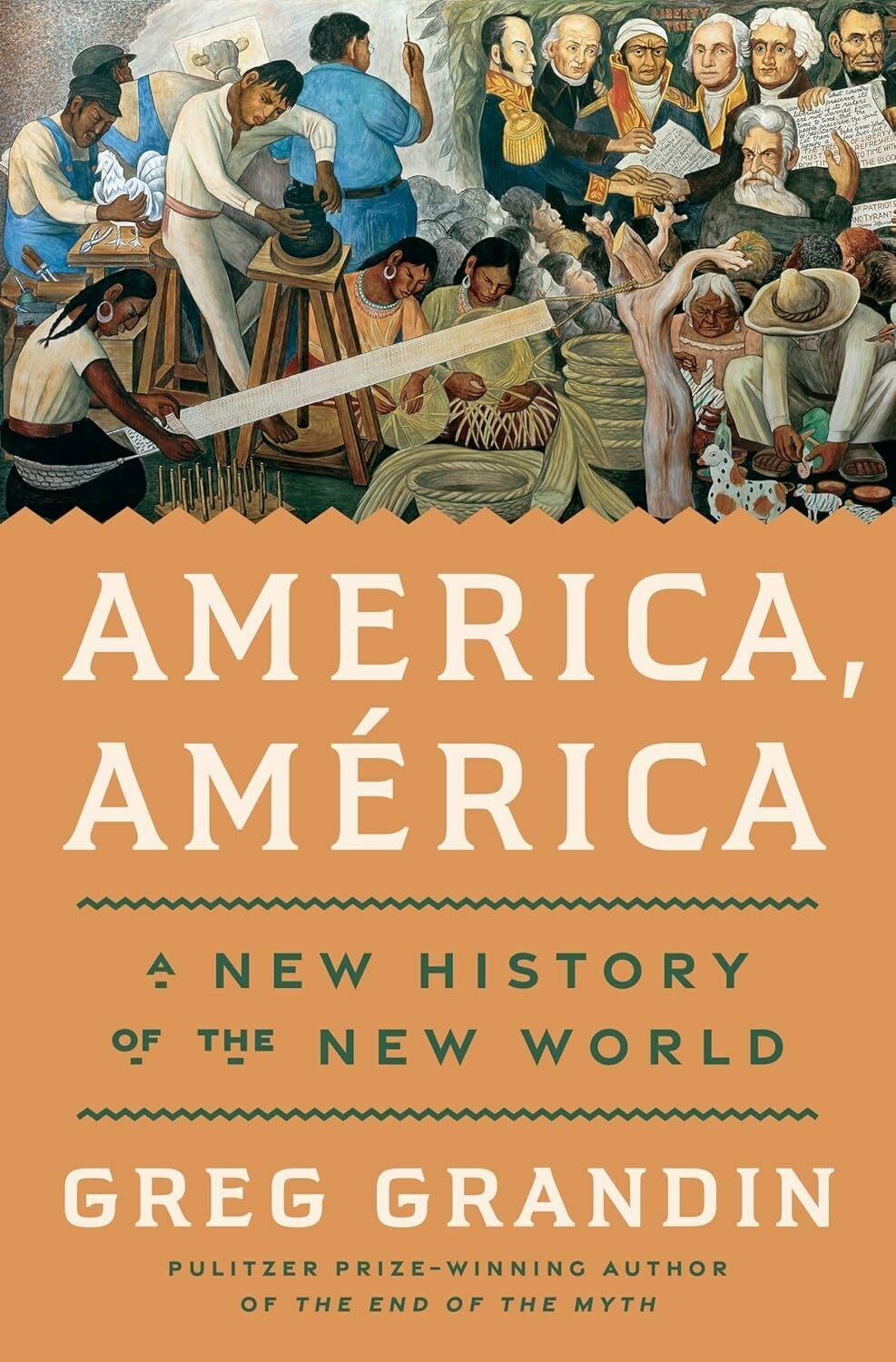📚 Finished reading America, América by Greg Grandin.
This book, by a Pulitzer-Prize winning historian, was a lengthy, yet extremely readable, 500-year history of the modern Americas that really quite shifted my views of the birth of the modern-day United States, whilst providing insights into the history and influence of the nations of South America that I had essentially no knowledge of.
Sure, it covers the horrors inflicted on the indigenous population coming from the violent greed of various European colonisers - a ghastly, but at least somewhat well-known history - but it was much of the the interplay between the ever-changing north and south of the American continent that was fresh to me. I learned a lot more detail about the rulers and other key figures from North, and especially South American history.
The general premise is that the identity of the United States was formed not only in relation to the commonly-held idea of “looking east” to Europe, but rather in relation to its southern neighbours, South America. And likewise Latin America’s various identities were shaped by their constant political and/or actual battles against its expansionist-inclined northern neighbour.
A key issue throughout the book is the author’s contrasting of the northern Anglo-American approach to expanding their territory - violently conquering so-called “terra nullis” - vs the countries of Latin America which were often more included to think of indigenous people as being part of the existing communities rather than as something between the non-existent and rival nations.
Grandin asserts that it was really Latin America that was the key driving force behind liberal internationalism. After their own wars of independence, the republics of southern America pioneered “American International Law” - which (in theory) promoted the equality of nations great and small, respect for the sovereignty of other nations, and, in general, the idea that you usually shouldn’t intervene in the business of other countries. These are ideas that ended up influencing the founding of transnational organisations such as the League of Nations and the UN.
This is a contrast to a more “might is right” expansionist doctrine, whereby if your country happens to be big and powerful then you have every right to - and maybe even a duty to - control or conquer other nations which cannot physically defend themselves.
These were ideas more associated with the early years of the United States (some might say they are unfortunately making a comeback). The US used its “Monroe Declaration” - originally celebrated as an expression of solidarity by Latin American nations - as an excuse to manipulate and assault the countries to its south and elsewhere; undermining foreign governments, enacting regime changes and so on.
Although there were exceptions on both sides. The author seems to be quite a fan of the US President Franklin Roosevelt. His “Good Neighbour Policy” led to the recognition of the sovereignty of other nations and their right to govern themselves. This, in the view of the author, gave him the moral authority to fight against the rise of global fascism.
The inhabitants (and colonisers of) southern America were of course not morally pure. Far from it. This book details enough for us to realise that the author certainly does not intend to portray ever resident of the south as morally heroic. But rather that there was a real difference between the typical Latin American vision of democracy (“vibrant and egalitarian”) and that of it northern neighbour (“tepid and unequal”); the presence of social and economic rights, vs the critical focus being solely on political rights (for some).
It’s also an exceptionally readable book. I believe it is over 700 pages long which would normally put me off. But I’m glad in this case it did not. It is, at least to me, an absolutely fascinating and quite radical rethinking of, in particular, the history of the US as I knew it, as well as the history, intellectual and otherwise, of South America -including the latter’s philosophical influence on several of the concepts that drive the ideas of international law, democracy and human rights as we know them today.
Or knew them.
The book has tremendous contemporary relevance. Some of the sentences above might resonate as topics we urgently need to be concerned with today, even whilst they are told from the perspective of events of up to several centuries ago. It would appear that this history of politics and justice is not always a one-way journey. And, as always, as trite and predictable as it is to say it: those who forget history are condemned to repeat it.
I’ll end with a quote from the book’s own blurb, which, as naturally biased as it will be, reflects how I felt about this exceptional book. I’d recommend it to anyone with an interest in history, the Americas, geopolitics and related subjects - or simply in how the world we know today came about.
At once comprehensive and accessible, America, América shows that centuries of bloodshed and diplomacy not only helped shape the political identities of the United States and Latin America but also the laws, institutions, and ideals that govern the modern world.
A culmination of a decades-long engagement with hemispheric history, drawing on a vast array of sources, and told with authority and flair, this is a genuinely new history of the New World.
